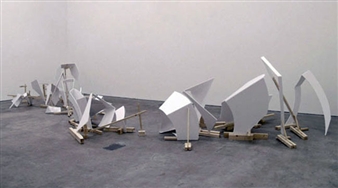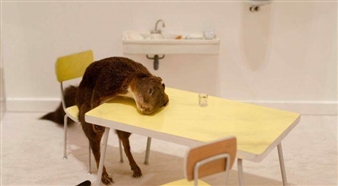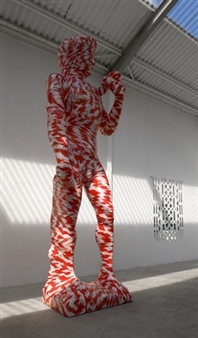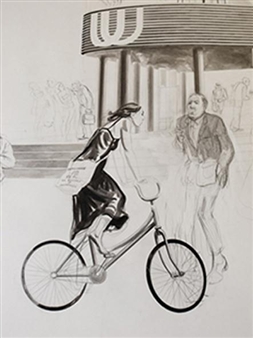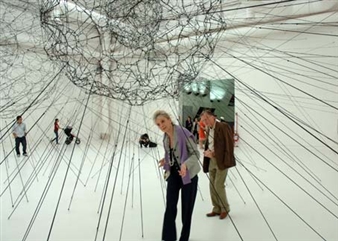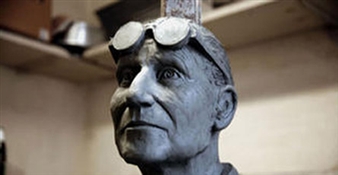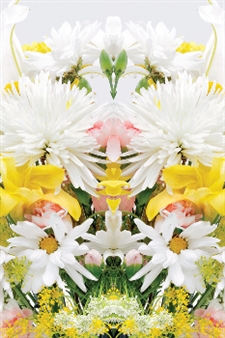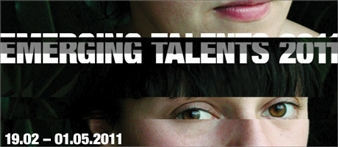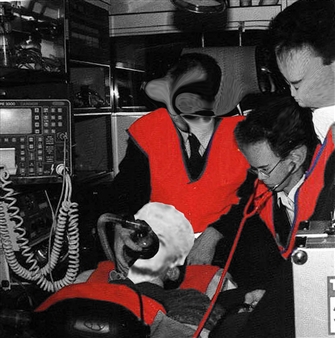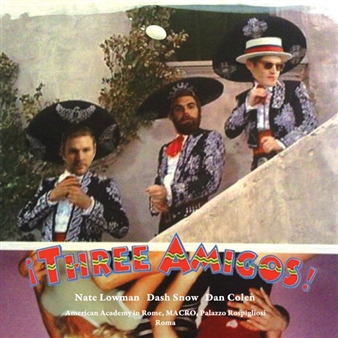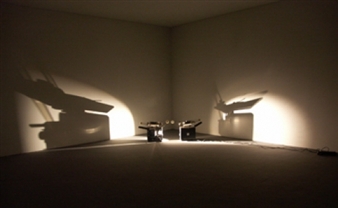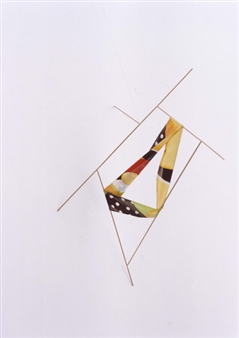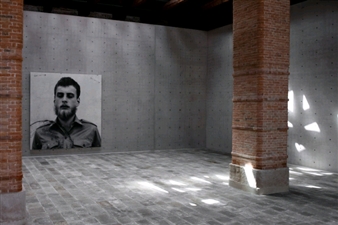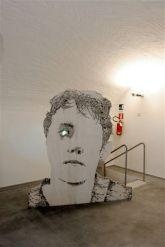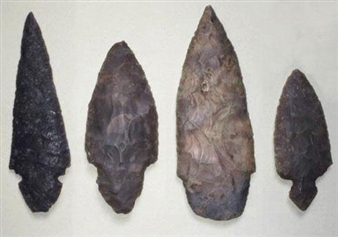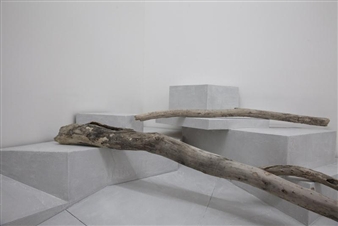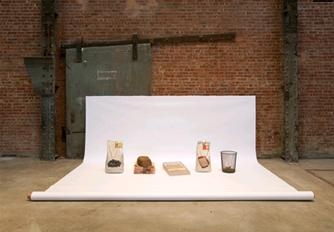Eroi
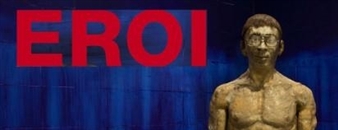
Civic Gallery of Modern and Contemporary Arts, Turin (Galleria Civica d'Arte Moderna e Contemporanea), Piemonte, Torino, 05/19/2011 - 10/09/2011
via Magenta, 31
Beginning May 19, the GAM Civic Gallery of Modern and Contemporary Art presents the exhibition Eroi (Heroes) curated by Danilo Eccher and with contributions from Alessandro Rabottini.
The exhibition explores the work of artists who carry out daring choices to the point of becoming the carriers of new social values through their own art. The selection has deliberately included several impressive large-scale works, some of which have been specifically conceived for this exhibition. In the postmodern age—which is often associated with the collapse of great ideals and established ideologies—Art becomes itself an act of individual resistance, gathering its own strength from the accumulation of knowledge. Today, the “heroic” act must thus be re-elaborated within an analytic scenario, in which heroism can not just be interpreted as the solitary struggle of one man: any sensational deed is immediately absorbed as news item, or it rapidly becomes a television event swallowed by the great machine of global communication. Heroism is thus brought back to its original qualities—will and ambition—and it takes on the task to rebuild a new ethics and new models, as possible social alternatives.
The individuality of the artist remains central to the works by Christian Boltanski, who celebrates the uniqueness of individual existence in one of his intense theatrical compositions. Conversely, Mario Merz relates to the entire cosmos, just as Anselm Kiefer’s masterpieces stage a universal and poignant drama of history, while Danh Vo and Latifa Echakhch opt for a symbolic heroism that is grounded in our collective memory. There are heroes who overcome sorrows and wounds, resisting against all odds as in Georg Baselitz’ heart-felt portraits, or the ones that find strength in their own nightmares, as in Louise Bourgeois’s disturbing installations, or even in their own suffering, as in the works by Hermann Nitsch and Marina Abramovic. The hero is a live human being in Jenny Saville’s painting; while the contemporary myth of Maria Callas becomes an icon in the work by Francesco Vezzoli, and football players take on an aura of holiness for Francesco Clemente. And despite their geometrical construction, Sean Scully’s large panels, combining abstraction, thick brushstrokes, and contrasting warm hues, ultimately reveal the hero’s lightly poetical origin.
In order to allow an adequate space for this major project, for the first time the same exhibition will develop in two different display areas, thus adjoining the Main Exhibition Area—the recently renovated exhibition space on the first floor—and the rooms usually devoted to the Underground Project. The Eroi exhibit will ideally draw a link between the institutional and deeply historical side of the Museum and its more contemporary and experimental section. This is to underline the timeless relevance of poetic heroism that remains strongly rooted in the origins of art itself. Fine modulo
The accompanying catalogue—edited by Allemandi—will delve into the hero theme with an interesting combination of art historical essays and the poetry of Patrizia Cavalli, who has contributed with a poetical text specifically created for this exhibit. The philosophical setting for this publication has been provided by Antonio Negri, who has always been able to capture with fine precision the dynamics of our society. The Italian theoretician—definitely not the type of intellectual who is “lost in his own thoughts,” and also quite a controversial figure—has presented a series of investigations that, rather than just being an interpretation of the present, consist of a relevant and true act of participation in it. The catalogue will also include photographs by celebrated photographer Claudio Abate, who has captured the works on display with his distinctive artistic style.
